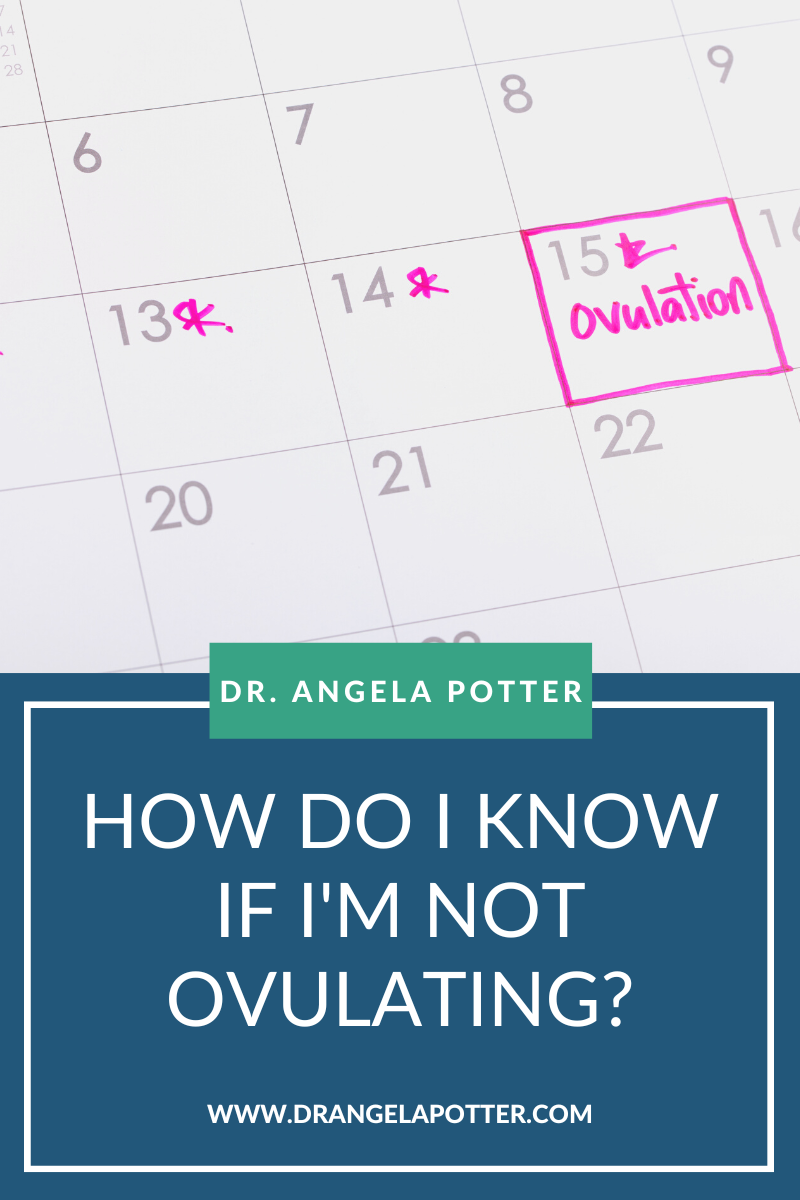How Do I Know If I’m Not Ovulating? Here Are The 5 Important Methods You Need to Know
You keep asking yourself, “how do I know if I’m not ovulating?”.
I'm glad you're here because that's an important question when you're trying to get pregnant. And knowing how to check ovulation is a key step for improving fertility with PCOS.
Today you are going to learn what ovulation is and five important methods to check for ovulation. With each of the five methods to check for ovulation, I will also share the pros and cons of that particular way or test.
These tools will help answer the question, "how do I know if I'm not ovulating?".
Oh, and be sure and read all the way to the end! I will be sharing a story about what it looks like to go from not ovulating to ovulating.
What is ovulation?
The American College of Gynecologists and Obstetricians (ACOG) defines ovulation as the release of the egg from the ovary, which then moves into one of the fallopian tubes.
When you ovulate, essential hormones also switch inside your body. Estrogen is the dominant hormone in the first half of your cycle. Then, at ovulation, this switches and progesterone becomes the dominant hormone.
It’s really fascinating how the human body works, isn’t it??!
Ovulation typically happens right in the middle of your cycle. Don't be alarmed if this doesn't happen for you! There is a wide range of normal.
But if you ovulate on a late day of your cycle and you still haven't gotten pregnant, then this is a good indication that you should talk with someone.
Why is ovulation important for fertility?
I’m so glad you asked! If you’re trying to get pregnant, ovulation is one event that is required for pregnancy.
Ovulation is the release of the egg to connect with the sperm. If no egg is released, then there is nothing to connect with the sperm to make a baby.
So now that you know the importance of ovulation for PCOS fertility, let's answer the question, "how do I know if I'm not ovulating?"
How do I know if I'm not ovulating? Which method is right for you?
Three out of the five methods you will learn about can be done simply at home. So trying one, or all three of these can give you powerful information.
Choosing an ovulation-checking method will also depend on how long you've been trying to get pregnant and how soon you want to get pregnant.
For someone who is just starting out, they might benefit from just checking body signs of ovulation.
But for someone who has been trying for 2 years already to get pregnant? They will want to discuss getting the lab tests and ultrasound completed.
Talking with your fertility doctor is the first step to figuring out what is most helpful for your unique PCOS fertility journey.
Here are the Top 5 Methods to Answer, How Do I Know if I'm Not Ovulating?
How Do I Know if I'm Not Ovulating Method #1: No Ovulation Signs in the Body
Remember how I mentioned above that some big hormone changes happen at ovulation? Well those hormone changes create signs of ovulation in the body. Do you experience one or all of these signs on the same day every month?
If not? That's one clue that you aren't ovulating.
But don't despair! Not everyone has strong ovulation signs. Even if you aren't able to see strong signs, you may still be ovulating.
These are the top signs your body gives you during ovulation:
An increase in cervical mucous
Breast tenderness
Mild spotting
Change in position of the cervix
Pain in the pelvis, also known as Mittelschmerz
PROS: Super-easy to check for these types of ovulation changes in your body, no extra tools needed.
CONS: It may not be as specific as you need for your fertility journey. Why? Because not everyone has these strong body signs at the time of ovulation.
How Do I Know if I'm Not Ovulating Method #2: Temperature Tracking
When progesterone takes over as the dominant hormone in the second half of your cycle, that also causes a rise in your internal body temperature.
Pretty amazing, right?
One method to check for ovulation is to track your temperatures every morning.
To get the most effective information out of this method you need to be sure and check your temperature every single morning. It won't give you the information you need if you start tracking temperature only when you think you might be ovulating.
The power in this method is to see your temperature throughout the whole month. If you are ovulating, you will see a distinct rise in your temperature at some point during the cycle, typically right in the middle of the cycle.
If you aren't ovulating? Well then you won't see much of a temperature change at all. Your temperatures will just stay pretty consistent throughout the whole month.
PROS: Again, super simple to do this at home on your own time. You will need to get a specific basal-body thermometer but these are easy to find at pharmacies and online.
CONS: You need to be consistent and take your temperature at the same time every morning. The power of this method is to first see if there are temperature changes happening each month. But second, is to see the pattern month-to-month. That makes this method one that takes longer to recognize if ovulation is happening or not.
How Do I Know if I'm Not Ovulating Method #3: Ovulation Predictor Kits (OPKs)
OPKs are handy fertility tools to have around. They are simple (if you think the ol’ peeing on a stick thing is simple) and give you some good information.
They check for rising LH hormone. If LH rises and you get a positive result on the stick, good news! You are about to ovulate.
So having sex on the next few days after you get a positive result is a straight-forward way (hopefully) on the path to baby-making.
PROS: You can do this in the privacy of your home and you can take as many tests as needed to determine when you are starting to ovulate. These OPKs are found in many drugstores, pharmacies and online.
CONS: I did mention you have to pee on a stick, right? That may easy for some and difficult for others! The other downside is that sometimes the sticks have false negatives or are expired.
How Do I Know if I'm Not Ovulating Method #4: Progesterone Testing
Like I mentioned earlier, progesterone is the hormone that is dominant in the second half of the cycle. It’s there for a reason. Progesterone is the hormone that keeps the pregnancy going in those early days.
It’s super-important, actually, vital to make sure you have adequate progesterone levels to make a baby. If you have low levels of progesterone, that indicates that ovulation didn’t happen at all.
Progesterone testing happens through your fertility doctor. Progesterone can be tested through blood, urine or saliva. It needs to be run on day 19, 20 or 21 of your cycle or 7-days after ovulation. But if you don't know if you're ovulating, then this can be tricky.
Don't worry, your fertility doctor will be able to talk you through what to do in this case.
PROS: It’s a basic lab test that can be ordered easily and in a variety of ways.
CONS: It needs to be tested on certain days of the month. Progesterone is tested on day 19, 20 or 21 of the cycle. Or, between five and seven days after ovulation if you know you are ovulating later in your cycle. So if you are on day 23 and you want to test your progesterone, you need to wait until next month.
How Do I Know if I'm Not Ovulating Method #5: Ultrasound
An ultrasound can be a definitive way to check ovulation and help you answer the question, how do I know I'm not ovulating?
This is a transvaginal ultrasound and it's done mid-cycle. The ultrasound checks ovaries to see if it finds a dominant follicle (egg). It also checks to see changes in size of the follicle to see if the egg already left the ovary.
Pros: Looking at specific changes in the ovary can give you a very definitive answer on ovulation.
Cons: You need to go into a clinic that offers transvaginal ultrasounds (although there's a good chance your OB-Gyn office offers them. It can also be an uncomfortable method for some. Also, you are getting the ultrasound on one specific day of the cycle, if you ovulate after this day then the ultrasound will miss ovulation.
Ovulation is an important step in making a baby like I mentioned earlier. Let’s put this information together so you can see what happens with a real person trying to get pregnant with PCOS.
How Do I Know if I'm Not Ovulating? A Story
So let’s talk about a common story that I hear. We will name this person Sarah.
So Sarah came in and her periods were 35 days. She had been trying to get pregnant for the past two years with no luck. She wasn't seeing a fertility doctor and she didn't know she was ovulating.
At her first session, I asked you a few direct questions to see if she was getting ovulation signs in her body. She wasn't.
Because she had been trying for the past two years, I ordered her progesterone right away.
It was low and showed that she wasn't ovulating.
First I got her on my Cycle Balancing Protocol to help increase ovulation. If she doesn't have the right hormones going up and down throughout the cycle, then she can't ovulate. My Cycle Balancing Protocol helps regulate those monthly hormones to improve ovulation.
Second, I addressed her elevated testosterone. That increase in testosterone (very common in PCOS) shuts down ovulation. It's easy to bring it back down so I got her on that protocol.
Next, we figured out her PCOS type. Turns out she has insulin-resistance. That increase in insulin? It shuts down ovulation so that needed to be addressed as well.
So she started a powerful nutrition plan that helped reduce her insulin and have regular cycles.
After two cycles, she started having some increase in cervical mucous every month. So on the next cycle I had her start doing OPK tests.
It took 3 cycles after that and she was pregnant!
Pretty exciting, isn't it?
Do you just want to get your period, ovulate and have your baby?
Do fertility struggles with PCOS leave you feeling lost and broken?
You don't have to spend any more nights crying yourself to sleep. You too can have access to the fertility answers like Sarah did.
Get started today by signing up for a PCOS Fertility Breakthrough Session here.
Did you LOVE this article? Are you excited to learn even more about boosting fertility with PCOS? Here are the next articles to read next:
Ultimate Guide to PCOS Fertility: What You Need to Know
How to Improve PCOS With These 10 Valuable Tips
Getting Pregnant With PCOS Quickly: 3 Truths You Need to Know



